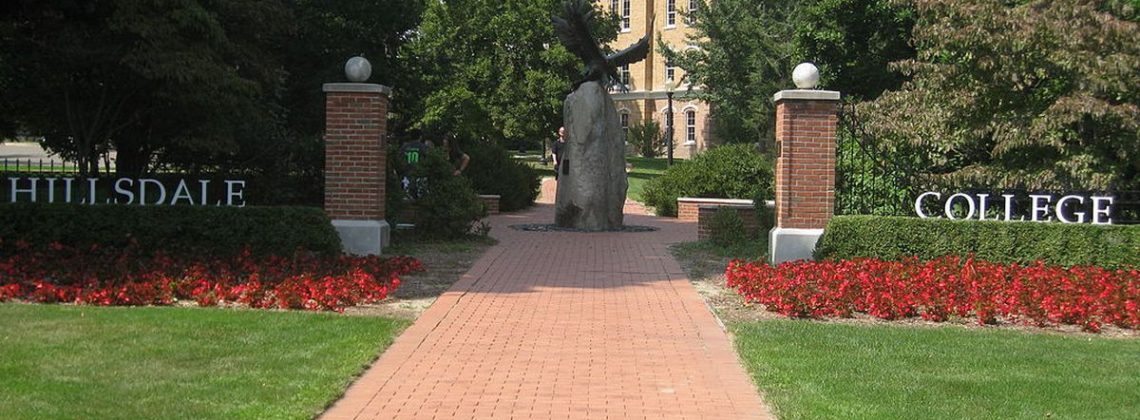

I have received substantial feedback from my essay on Hillsdale published Monday. Some found it helpful, others not so much. One writes an essay of this sort with the hope of generating conversation, so I can’t complain. Thanks to those who patiently helped clarify issues that I either muddled or misunderstood. Here I hope to add things that should have been included originally, concede a few errors, and clarify an assertion or two.
First, I would like to express my admiration for Hillsdale as an institution of higher learning. My opinions about its relationship to contemporary political debates aside, I recognize Hillsdale to be a serious institution with an enviable reputation for attracting students of high achievement. Its commitment to the humanities is especially impressive and praiseworthy. Little in my piece signaled my personal regard for Hillsdale’s fine academic program. I regret that.
Second, in my effort to demonstrate what I found problematic about Hillsdale as a “Christian college,” my piece failed to recognize the many faithful Christian scholars hard at work there. These folks are freely and actively integrating their faith with their disciplines while mentoring and caring for students in the same fashion. I praise God that Hillsdale provides an environment where Christian academics are encouraged to give full-throated expression to their faith. Perhaps their ability to do so is more impressive without a formal confessional framework than it would be if working within one. This is something I will keep thinking about. Some of these folks, I would guess, agree with the outward-facing political stances of the college administration. Others I am certain do not. It is important to acknowledge the significant number of faithful Christian scholars at Hillsdale as a key reason Christian families in the market for a good school keep it on their radar.
Third, I understand now that I erred in suggesting that Hillsdale shifted toward identifying as a “Christian college” in response to the rise of Trumpism. They did not. The timing is out of sequence. I now understand that Hillsdale made this shift in 2015, well before Trump was being taken seriously as a leading candidate and even longer before any of Hillsdale’s administrators gestured support for him. My cynicism was misplaced. I stand corrected. Still, I remain confused by what motivated Hillsdale to move in this direction without any evident accompanying change in hiring or admissions policy.
Fourth, when I pointed to the Council of Christian Colleges and Universities as the primary framework and model for “confessional” Christian colleges, I fairly invited scrutiny of member schools according to the standards we uphold. However, I didn’t acknowledge some of the admitted challenges within the CCCU over the past several years. CCCU member institutions haven’t been uniformly committed to offering a robust, theologically rooted, rigorously integrated education designed to produce wise disciples of Jesus. There is plenty of room for criticism of these schools (my own included). We can and must do better. Even if the vision I described remains uneven and still aspirational, it also remains well worth pursuing.
Fifth, I probably added more heat than light to the discussion by invoking “Christian nationalism” as a force driving the growth of “civilizational” Christian colleges. It might have been more helpful to frame it in light of a growing hunger for “cultural Christianity,” the right’s increasing desire to reassert the visible and explicit remnants of Christianity’s former dominance in politics, law, and cultural life. Christian nationalism may or may not be the same thing so adding it to my critique wasn’t especially helpful.
Despite the encouraging things happening on campus at Hillsdale (and, undoubtedly, at other places that promote a civilizational mission to its external partners), it is impossible to ignore or separate those from the aggressively partisan right-wing politics of its outward-facing promotional machine that seems quite committed to fighting an all-out culture war—in the name of Christianity. This is why I remain convinced of the central tenet of my essay: the distinction between “confessional” and “civilizational” ideas of a Christian college.
Whether or not readers agree with my analysis, I hope some of my thoughts on the matter can aid in generating needed conversations about the value and purpose of Christian higher education during these turbulent times.
Jay: I read your first article and found it to be essentially correct. Probably this is true because of my own perspective
It’s kind of you to critique yourself here but you’ve been too hard on yourself, I think.
Yeah, its Christian Nationalism that we are seeing .
The main point is that the civilizational approach is wrong for faithful Christians.